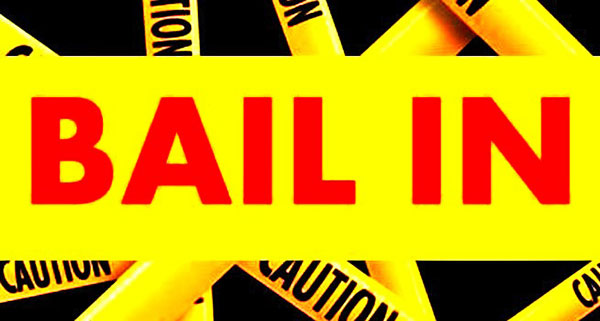|
from WolfStreet Website
Taxpayers off the hook. What it means for Italy.
Its assets, including a massive portfolio of small-business clients, now belong to Banco Santander, Spain's biggest bank. The global giant now has 17 million customers in Spain, a country of just 45 million people.
The price was €1. Spain's Ministry of the Economy revealed that by 3 pm Tuesday, Popular was no longer able to contain the deposit outflow.
It had run out of collateral to cover any further lines of emergency liquidity.
This apparently triggered the intervention by the ECB's Single Resolution Board (SRB), which decided on Tuesday that the bank "was failing or likely to fail" and would have to be wound down, unless a buyer could be found.
Banco Popular's shareholders, who'd been repeatedly suckered into handing Popular fresh funds in numerous capital expansions, will be wiped out.
Holders of Popular's riskiest bonds, its AT1 bonds and AT2 bonds, or CoCo bonds, also got wiped out. These bonds had already plunged in recent weeks.
But the bank's senior bondholders and depositors were spared.
To plug the remaining hole of Popular's non-performing loans, Santander has said it will set aside €7.9 billion, most of which will be raised in a fresh €7 billion rights issue.
This marks the first time under the EU's Bank Recovery and Resolution Directive, passed in January 2016, that shareholders and subordinate bondholders of a European bank have not been bailed out by taxpayers, but where "bailed in."
And it was the first time that a banking failure was allowed to occur in either Spain or Italy whose resolution didn't involve taxpayer intervention. Perhaps the Eurozone's banking authorities are finally growing some teeth.
The fact that financial markets received the bail-in of Popular's investors calmly tells the ECB that investor bail-ins are the route to go.
And so the rule takes hold.
Next Stop - Italy
The ECB's decision to wind down Popular stands in sharp relief with its decision last week to award Italy's Monte dei Paschi di Siena a last-minute reprieve, on the grounds that the Italian lender was not insolvent, just liquidity challenged.
If it goes ahead, the rescue of MPS will be the largest government intervention in Italy's financial sector since the nationalization of Italian credit institutions during the Mussolini dictatorship.
MPS's stay of execution probably had a lot more to do with its size and relative degree of systemic importance (i.e. contagion threat) than the state of its financial health.
But Italy is brimming with teetering mid-sized banks that, like Banco Popular, are perfect candidates for a bail-in. Of Italy's 500 banks, 113 are at risk (with a "Texas Ratio" of 100 or more) and 24 are seriously in trouble (with a TR of over 200%).
They include the two mid-sized Veneto-based banks, Banca Popolare di Vicenza and Veneto Banca, which have already received billions of Euros in taxpayer assistance but are still desperately trying to avoid a bail-in.
To qualify for more public funds they were instructed by the European Commission last week to find an additional €1 billion in private capital.
Then there are banks like Banca Carige, which has been sinking in recent days after the bank's top investor criticized CEO Guido Bastianini and its chief financial officer for their management.
As Bloomberg reports, the lender is seeking to replenish capital through a €450 million stock sale and reduce bad loans to stay afloat.
Contagion Risk
Bail-ins of investors are the way banks should be resolved, but in banking systems that are beset with deep-seated structural problems, such as Italy, there is a risk that bailing in one or two banks could prompt depositors and investors to move funds from weak banks to stronger ones (including banks outside the country), creating liquidity stress and even bank runs.
As we've seen in the collapse of Popular, banks can often have existential issues simmering away in the background for months, if not years, but once they're thrust into the foreground, it can take just days for the confidence of depositors and investors to completely vanish.
In Spain, there are far fewer banks today than they were six years ago, at the onset of the country's banking crisis. As such, the risk of contagion spreading from one bank to another is limited.
By contrast, in Italy, where the problems with the banks, in particular the preponderance of non-performing loans, have been left to fester for years, the contagion risks both within the banking system and beyond it are extremely high.
|


